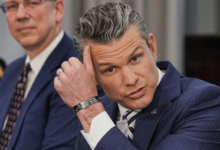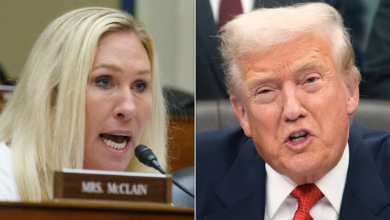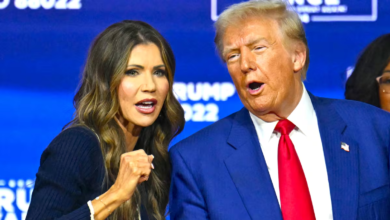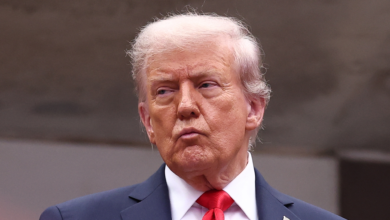Wisconsin group sues Elon Musk, alleging million-dollar check giveaways were voter bribes
Musk has said the giveaways didn't violate state laws because they were not up to chance.
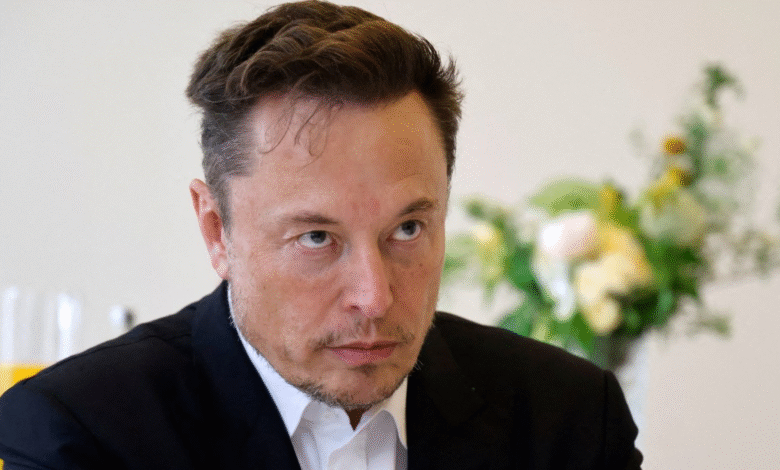
A Wisconsin watchdog group has filed a lawsuit against Elon Musk, accusing him of illegally bribing voters with millions of dollars in checks and $100 gifts during the last state Supreme Court election.
The Wisconsin Democracy Campaign, a nonpartisan nonprofit dedicated to election transparency, along with two Wisconsin voters, filed a lawsuit against Elon Musk, his independent political committee, America, and another entity he owns, USA. In the lawsuit, the plaintiffs allege that Musk and his entities violated state laws prohibiting election bribery and unauthorized lotteries. The complaint also accuses Musk of civil conspiracy and disturbing the peace. Musk and America Committee did not respond to a request for comment.
In the context of the Wisconsin Supreme Court elections, electoral bribery—offering more than a dollar to induce voters to vote—undermines voters’ confidence in the legitimacy of the electoral system and the independence of the judiciary, according to the complaint.
The complaint alleges that Elon Musk violated state law by giving $100 to voters who signed a petition “opposing activist judges” and distributing checks worth millions of dollars to those voters. The complaint states that the winners of the checks voted for candidate Brad Schimel. At a town hall meeting in Green Bay, Musk distributed checks worth millions of dollars to two different people, both of whom, according to the complaint, voted for Schimel. In a video posted by the American Political Action Committee on X, one of the winners declared that he had voted for Schimel and encouraged others to do the same.
“Everyone should do what I did: sign the petition, refer their friends, and vote for Brad Schimel,” said the winner, Nicholas Jacobs, in the video.
The complaint states that Musk stated the $1 million prizes would be awarded “as a thank you” to those who “took the time to vote.”
Despite Elon Musk’s U.S. political action committee spending more than $12 million on Schimel’s campaign, candidate Susan Crawford won the election.
Before the results were announced, Wisconsin Attorney General Josh Kaul filed a similar lawsuit against Musk for his involvement in the state Supreme Court election, but a district judge refused to hold an immediate hearing. Similarly, a Pennsylvania judge denied a request to block Musk’s $1 million donations in that state. During the presidential election, Elon Musk’s U.S. Political Action Committee (APAC) distributed millions of dollars in checks to registered voters in key states, a practice the Justice Department warned was illegal.
Elon Musk defended his donations during the presidential election, despite allegations of illegality, claiming that the petition signers did not receive the money as a reward and that such an opportunity “did not exist here.” Rather, the petition signers were spokespeople for the U.S. Political Action Committee, who had “the opportunity to win” $1 million.
“There’s no question that the chances of winning for a qualified voter are different from those of a qualified voter,” Elon Musk said, according to Reuters.
Jeff Mendel, co-founder of Law Forward, the law firm that filed the lawsuit on behalf of the Wisconsin Democracy Campaign, told NBC News that the lawsuit was being granted additional time.
“The election is over. Some emotions have subsided, and we’re getting things back on track and asking the court to follow its usual procedures. We’re confident we’ll get a full and fair judgment,” Mendel said.
The Wisconsin Democracy Campaign’s lawsuit also seeks to prevent Elon Musk from “repeating any of this illegal behavior in future elections in Wisconsin.”
“Everyone who closely followed or saw what was happening here in Wisconsin during this turbulent time was absolutely terrified and was saying things like, ‘Well, this is absolutely illegal,’ or ‘He can’t get away with it,'” Mendel said.
That’s the real purpose of this trial: to ensure that a court rules, in accordance with the law and, I think, the intuition of people across the political spectrum, that this behavior is illegal, that it’s inconsistent with the functioning of our democracy, and that it doesn’t happen again.



